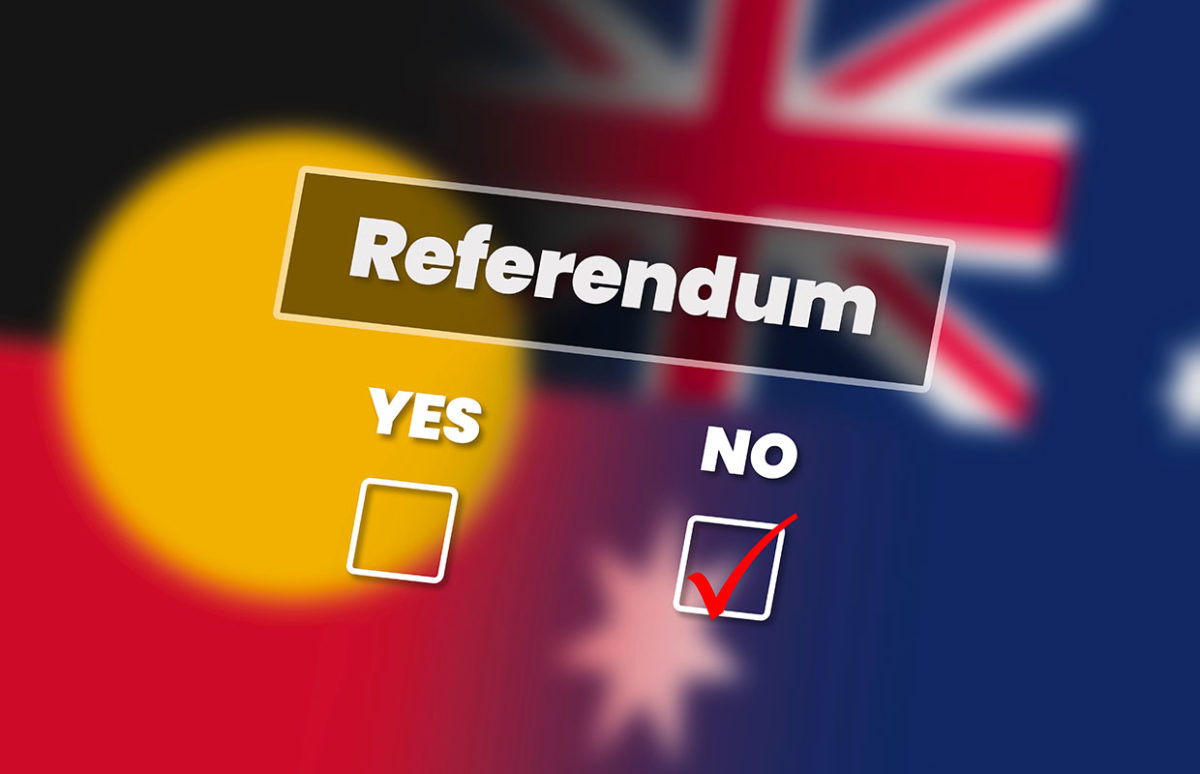On 14 October, Australians voted 60-40% against a referendum proposal on a change to the Constitution that would have given Indigenous Australians a greater voice in the legislature.
If approved, the Aboriginal and Torres Strait Islander Voice would have been a consultative body to advise lawmakers on issues affecting Indigenous Australians.
Labor Prime Minister Anthony Albanese announced the referendum back in June and at first there seemed strong support for it. However, when it came to polling day, all six states returned a “No” vote, with only the Australian Capital Territory (ACT) voting for the change. Referenda to change the Australian constitution are famously difficult to pass: there has to be an overall yes vote and a majority of states voting yes. There have been 45 attempts to bring in constitutional change since 1901 and only eight were successful.
Results show that in areas with a majority of Indigenous Australian voters, “yes” came out well ahead. Most Indigenous politicians had supported the yes vote, though a group called the Blak Sovereign Movement, led by Aboriginal Senator Lidia Thorpe opposed it as being too little too late.
"This is not our constitution, it was developed in 1901 by a bunch of old white fellas, and now we're asking people to put us in there — no thanks," Ms Thorpe said after the result.
Many in the Yes camp complained that the No movement had spread fake news, saying that the Voice would be able to increase taxes or demand reparations for past treatment of First Nations communities. None of which is true, the Voice would only have been an advisory body.
Another theme of the No campaign was that the referendum was too difficult for non-Indigenous Australians to understand, using the slogan "Don't know? Vote no.". This video by Yorta Yorta man and renowned rapper aimed at showing the referendum was both simple and clearly explained went viral in the last weeks of the campaign.
Aboriginal and Torres Strait Islander people, who lived in Australia for tens of thousands of years before British colonisation, make up about 3.2% of the 26 million Australian population. Australia is the only former British colony, which never signed a treaty with the indigenous people who lived on the land that they colonised. Until 1967, and a previous referendum, Aboriginal Australians were not even counted in the national census as citizens.
The referendum was requested by over 250 Aboriginal and Torres Strait Islander Delegates at the First Nations Constitutional Convention at Uluru in May 2017. That produced the Uluru Statement from the Heart to the Australian People, which reminds the Australian nation: "Our Aboriginal and Torres Strait Islander tribes were the first sovereign Nations of the Australian continent and its adjacent islands, and possessed it under our own laws and customs... This sovereignty... has never been ceded or extinguished, and co-exists with the sovereignty of the Crown."
The Statement reminds the nation of past wrongs like the Stolen Generations and the continued problems today, stating that, "Proportionally, we are the most incarcerated people on the planet." It ends with a call for a referendum to give the First Nations a say in laws which affect them.
Still Hopes of a Voice
Despite the failure to include the Voice in the national constitution, several state and territory governments in the federation say they'll proceed with legislation to implement the Uluru statement from the heart at state level.
Victoria, Queensland and South Australia didn't wait for the referendum to begin implementing parts of the statement. In fact, Victoria has implemented all three. It already has a voice to its state parliament, a democratically elected People's Assembly and a Justice Commission investigating the past treatment of Indigenous Australians. Furthermore, the state is scheduled to open treaty negotiations with Indigenous groups in 2024.
New South Wales has the largest population of First Nations people of any state but has not as yet begun to apply the Uluru statement, despite a campaign promise by state Premier Chris Minns to provide 5 million AUD for a year-long consultation on a treaty.
You'll find more on First Australians in Shine Bright 4e File 8 Into the wild outback, in Speakeasy Files 3, and Shine Bright Terminale File 22 Landscape of History.
Copyright(s) :
Maddie Cariss / Shutterstock
> Australia to Hold Referendum on Indigenous Representation
> Australian Identity Crisis
> Uluru to Close to Public
> Change in Australia’s National Anthem to Reflect Indigenous Heritage
> Australia Digital Resources
> Sorry Day Teaching Resources
Tag(s) : "Aborigines" "Australia" "Australian politics" "citizenship" "civil rights" "First Australians" "identity" "indigenous people" "parliament" "referendum" "Shine bright 4e" "Shine bright Ter" "Sorry Day" "Speakeasy Files 3e" "vote"





